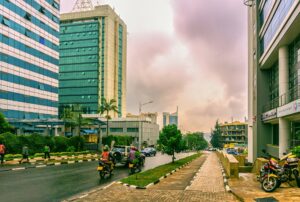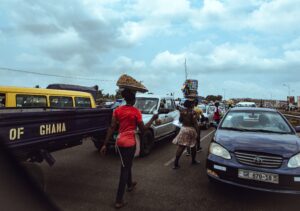If you want to start a transportation business in Uganda, there are certain procedures you must do to assure success. One of the first steps is to decide what type of transportation business you wish to start. This could include, for example, a taxi service, a bus company, or a haulage company.
Ongoing process.
Once you’ve decided on the type of transportation business you want to start, you’ll need to weigh the benefits and drawbacks of the venture while also complying with all regulatory regulations. This may include registering your company with the right government organizations, acquiring required licenses and permits, and ensuring that your cars satisfy safety and environmental standards.
You may also need to borrow money to buy transportation vehicles and form a business team to help manage operations. Competition in the transportation industry can be severe, so it’s critical to carefully analyze your market and establish a solid business plan to help you stand out.
Market Research
Before starting a transportation business in Uganda, it is essential to conduct thorough market research. This research will help you identify your target market and analyze the competition.
Identify Your Target Market

The type of transportation business you want to start will determine your target market. If you want to start a taxi service, your target client could be tourists, business travelers, or residents who don’t have transportation.
If you want to start a cargo transportation company, your target market may be enterprises that need to carry items from one location to another.
You can conduct surveys, examine data, and chat to potential clients to establish your target market. You can also examine transportation sector trends to see where there is a need for your services.
Analyze the Competition

Analyzing the competition will help you understand the strengths and weaknesses of your competitors and identify areas where you can differentiate yourself. It will also help you determine pricing strategies and marketing tactics.
To analyze the competition, you can conduct a SWOT analysis (Strengths, Weaknesses, Opportunities, and Threats) of your competitors. You can also visit their websites, read reviews, and talk to their customers.
It is essential to note that competition in the transportation industry in Uganda is fierce, with many informal transportation providers such as boda-bodas (motorcycle taxis) and matatus (minibus taxis) dominating the market.
Therefore, it is crucial to differentiate yourself and provide excellent service to stand out from the competition.
Overall, market research is a crucial step in starting a transportation business in Uganda. By identifying your target market and analyzing the competition, you can make informed decisions that will help you succeed in the industry.
Legal Requirements.
Starting a transportation business in Uganda requires compliance with various legal requirements. Here are some of the legal requirements you need to fulfill to start a transportation business in Uganda.
Register Your Business

The first step in starting a transportation business in Uganda is to register your business. All businesses in Uganda are required to register with the Uganda Registration Service Bureau (URSB) to formalize their legal status.
The entity will receive either a Certificate of Registration (if registered in your name or business name) or a Certificate of Incorporation if registered as a Limited Business Company.
You can register your business online or in person at the URSB office. The registration process takes approximately 2-3 working days.
Obtain Necessary Licenses and Permits
To operate a transportation business in Uganda, you need to obtain the necessary licenses and permits. The following are the licenses and permits you need to obtain:
-
- Operating License: You need to obtain an operating license from the Ministry of Works and Transport. The operating license is valid for one year and renewable upon expiry.
-
- Route License: You need to obtain a route license from the Ministry of Works and Transport. The route license specifies the routes on which you can operate your transportation business.
-
- Vehicle License: You need to obtain a vehicle license from the Uganda Revenue Authority (URA). The vehicle license is valid for one year and renewable upon expiry.
-
- Insurance: You need to obtain insurance for your vehicles. The insurance covers third-party liability, loss or damage to the vehicle, and theft.
-
- Roadworthiness Certificate: You need to obtain a roadworthiness certificate from the Ministry of Works and Transport. The roadworthiness certificate certifies that your vehicles are in good condition and meet the required safety standards.
Registering with the Uganda Revenue Authority (URA), Kampala City Council Authority (KCCA), and other relevant bodies.
Registering your transportation business with the Uganda Revenue Authority (URA), Kampala City Council Authority (KCCA), and other relevant bodies is an important step in starting a business in Uganda.
Here are some things to consider when registering your business:
Registering with the Uganda Revenue Authority (URA):

-
- The URA is responsible for collecting taxes and enforcing tax laws in Uganda.
-
- To register your business with the URA, you will need to obtain a Tax Identification Number (TIN) by completing the TIN registration form and providing supporting documents such as your business registration certificate and proof of address.
-
- Once you have obtained a TIN, you will need to register for Value Added Tax (VAT) if your business meets the VAT registration threshold.
Registering with the Kampala City Council Authority (KCCA):

-
- The KCCA is responsible for regulating businesses and enforcing bylaws in Kampala.
-
- To register your business with the KCCA, you will need to obtain a trading license by completing the trading license application form and paying the relevant fees.
-
- You may also need to obtain other permits or licenses depending on the nature of your business, such as a road service permit or a goods vehicle license.
Registering with other relevant bodies:

-
- Depending on the type of transportation business you are starting, you may need to register with other relevant bodies such as the Ministry of Works and Transport or the Uganda Registration Services Bureau.
-
- For example, if you are starting a bus or taxi business, you will need to obtain a road service permit from the Ministry of Works and Transport.
Overall, registering your transportation business with the relevant authorities in Uganda is an important step in ensuring that your business operates legally and avoids any potential fines or penalties.
By following the registration procedures outlined by the URA, KCCA, and other relevant bodies, you can obtain the necessary licenses and permits to start your business with confidence.
Choosing the right type of vehicle for your transportation business.
Choosing the right type of vehicle is a critical decision when starting a transportation business in Uganda. Here are some factors to consider when selecting the right type of vehicle for your business:
-
- Cargo Capacity: Consider the type of goods you will be transporting and the volume of cargo that you will need to carry. If you plan to transport large items such as furniture, equipment, or construction materials, you may need a truck or a van with a large cargo capacity. On the other hand, if you plan to transport smaller items such as parcels or documents, you may need a smaller vehicle such as a car or a motorcycle.
-
- Fuel Efficiency: Fuel costs can be a significant expense for your transportation business, so it is important to choose a fuel-efficient vehicle. Look for vehicles with high gas mileage ratings or hybrid or electric vehicles that can help reduce your fuel costs.
-
- Terrain: Consider the type of terrain you will be driving on. If you will be driving on rough or unpaved roads, you may need a vehicle with four-wheel drive or high-ground clearance. On the other hand, if you will be driving in urban areas with heavy traffic, you may need a smaller vehicle that is easy to maneuver and park.
-
- Safety Features: Safety should be a top priority when choosing a vehicle for your transportation business. Look for vehicles with features such as airbags, anti-lock brakes, and electronic stability control. You may also want to consider vehicles with advanced safety features such as lane departure warning systems or blind spot monitoring.
-
- Cost: Cost is always a factor when starting a business, so it is important to choose a vehicle that fits your budget. Consider the upfront cost of the vehicle, as well as ongoing expenses such as fuel costs, maintenance, and insurance.
Examples of vehicles that may be suitable for different types of transportation businesses in Uganda include:
-
- Trucks or vans with large cargo capacity for transporting furniture, equipment, or construction materials
-
- Cars or motorcycles for transporting small parcels or documents
-
- Buses or minibuses for transporting passengers within the city or to other parts of the country
-
- Refrigerated trucks for transporting perishable goods such as food or medicine
Purchasing or leasing vehicles.
When starting a transportation business in Uganda, one of the biggest decisions you will face is whether to purchase or lease your vehicles. Here are some things to consider when making this decision:
Purchasing:
-
- Purchasing a vehicle gives you full ownership and control over the vehicle, allowing you to customize it to your specific business needs.
-
- You can use the vehicle as long as you want without any restrictions, and you can sell it or trade it in when you are ready to upgrade.
-
- However, purchasing a vehicle requires a significant upfront investment, and you will be responsible for all maintenance and repair costs.
Leasing:
-
- Leasing a vehicle involves paying monthly installments for the use of the vehicle, usually for a set time.
-
- Leasing can be a more affordable option as it does not require a large upfront investment, and maintenance and repair costs are often included in the lease agreement.
-
- However, leasing comes with restrictions on how you can use and modify the vehicle, and you do not own the vehicle at the end of the lease term.
When deciding whether to purchase or lease your vehicle, it is important to consider factors such as your budget, the type of vehicle you need, and your long-term business goals.
car dealers companies in Uganda
In Uganda, there are many places where you can purchase or lease vehicles for your transportation business. Some examples include:
Car dealerships: Many car dealerships in Uganda sell both new and used vehicles. Some popular dealerships include
Online marketplaces: Websites such as Cheki Uganda and Jumia Deals Uganda allow you to search for vehicles for sale by private sellers and dealerships.
Leasing companies: Several leasing companies in Uganda offer vehicle leasing services, including
Why starting a transportation business in Uganda can be a good idea.
Starting a transportation business in Uganda can be a good idea for several reasons. Here are seven simple points to consider:
High demand for transportation services:

With a growing population and economy, there is a high demand for transportation services in Uganda, including taxi services, bus services, and logistics services.
Low competition:

While the demand for transportation services is high, the competition in the industry is relatively low, providing an opportunity for new businesses to enter the market.
Favorable government policies:

The Ugandan government has implemented several policies to support the transportation industry, including tax incentives for businesses that invest in the sector.
Strategic location:

Uganda is strategically located in East Africa, making it a hub for transportation and logistics services in the region.
Diverse customer base:

With a diverse population and economy, there are opportunities to serve a wide range of customers, from individuals to businesses.
Growing tourism industry:

Uganda is home to several tourist attractions, including national parks and historical sites, creating opportunities for transportation services that cater to tourists.
Growth potential:

With a growing economy and population, there is potential for transportation businesses to grow and expand their services in Uganda and beyond.
Starting a transportation business in Uganda can be a good idea due to the high demand for services, low competition, favorable government policies, strategic location, diverse customer base, growing tourism industry, and growth potential.
A table comparing different Vehicle Prices in Uganda
|
Type of vehicle
|
Purchase price (UGX) |
Leasing Price (UGX/year) |
|
Sedan (Toyota Corolla)
|
40,000,000- 70,000,000
|
2000,000- 3500,000
|
|
SUV (Toyota Land Cruiser) |
200,000,000- 400,000,000
|
10,000,000- 20,000,000
|
|
Bus (Toyota Hiace)
|
150,000,000- 200,000,000
|
7,500,000- 10,000,000
|
|
Truck (Isuzu F-series)
|
100,000,000- 150,000,000
|
5000,000- 7,500,000
|
|
Motorcycle (Bajaj Boxer)
|
3000,000- 5000,000
|
300,000- 500,000
|
These are estimated prices based on market research and may vary depending on factors such as the vehicle’s condition, model year, and location. It’s important to do your own research and negotiate with dealerships or leasing companies to get the best price for your transportation business in Uganda.
conclusion
Starting a transportation business in Uganda can be a viable option for entrepreneurs hoping to capitalize on the country’s growing need for transportation services. Entrepreneurs can make informed selections when launching their enterprises by evaluating issues such as vehicle type, purchase and lease prices, and relevant regulations and permits. We hope that this post has provided useful information and direction to people considering launching a transportation business in Uganda.
We would like to express our heartfelt gratitude to the team at share-afro.com for their efforts in connecting entrepreneurs across Africa, as well as their research and experience in producing this informative piece. Their dedication to empowering and supporting entrepreneurs in Uganda and beyond is admirable, and we appreciate their contributions to the business community. Thank you for your hard work and insightful insights, share-afro.com.






6 thoughts on “Starting a Transportation Business in Uganda: A Step-by-Step Guide.”
Hi Alex! Thank you for your comment! I’m thrilled to hear that you found the information inspiring. To raise enough capital for your cargo transport business, I recommend starting with a comprehensive business plan tailored to your goals and target market. Explore financing options like loans or investments, save and budget wisely, and consider leasing or financing a truck instead of purchasing one outright. Additionally, seek partnerships or collaborations in the industry, research grants and incentives, and network with professionals. With careful planning and determination, you can secure the necessary capital for your entrepreneurial journey. Best of luck, Alex!
Ts okay
Am really convinced with this great website information I need to start my taxi transportation business from central Uganda to northern part of the country. But am confused about the type of the car or bus I start with considering this country’s road conditions BUT I MUST SAY THANK YOU FOR SUCH A GREAT IDEA
Hi Patrick,
Thanks for your feedback and interest in starting a transportation business in Uganda. Considering the road conditions, a sturdy 4×4 SUV or minivan could be good options. Prioritize passenger comfort, safety features, and fuel efficiency. Do thorough research and seek advice from experienced operators. We’re here to support you. Best of luck on your journey!
Share-Afro Team
I’m so thankful for your inspiration, l would love to invest in cargo transportation and l want to know which truck is the best and strong between Scania and Benz , and secondly where can l get second hand to buy or for hire?
Thanks
Hi Charles,
I appreciate your enthusiasm for starting a cargo transportation business! When choosing between Scania and Benz for trucks, it’s essential to consider factors like load capacity, fuel efficiency, maintenance costs, and terrain adaptability.
Scania trucks are known for their durability and fuel efficiency, while Mercedes-Benz trucks often focus on comfort and advanced technology. Assess your specific business needs to determine which brand aligns better with your requirements.
For second-hand trucks, consider reputable dealerships, online platforms, or auctions. Inspect the vehicle’s maintenance history and condition thoroughly before making a decision. Additionally, leasing options might be worth exploring to assess the feasibility of your venture.
Best of luck with your business venture!
Warm regards,
[share-afro team]